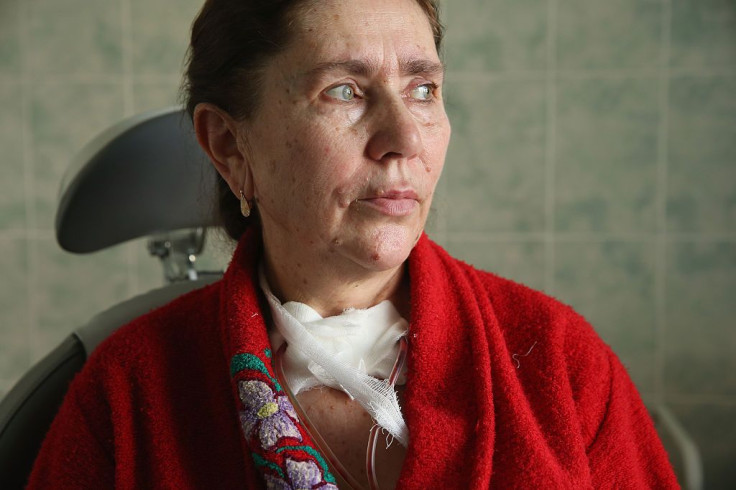To Fight Thyroid Cancer Overdiagnosis, Experts Rename A Type Of Tumor

The overdiagnosis of thyroid cancer has been an ongoing and steadily escalating issue over the past few decades. In 1992, six out of every 100,000 Americans were diagnosed with thyroid cancer. In 2012, that number was two-and-a-half times higher, at 15. Despite the increase in diagnoses, however, the rate of people who have died of thyroid cancer has remained the same since 1935, suggesting doctors are misdiagnosing less-harmful thyroid tumors as cancer.
Thyroid cancer is erroneously becoming the most common cancer in the United States. In order to combat this issue, an international panel of pathologists and clinicians, led by researchers at the University Of Pittsburgh School Of Medicine, has renamed and reclassified a less-harmful type of thyroid cancer, called encapsulated follicular variant of papillary thyroid carcinoma (EFVPTC), to reflect that it is noninvasive and has a low risk of recurrence.
"To my knowledge, this is the first time in the modern era a type of cancer is being reclassified as a non-cancer,” said senior investigator Dr. Yuri Nikiforov, a professor of pathology and the director of Pittsburgh’s Division of Molecular and Genomic Pathology, in a press release. “I hope that it will set an example for other expert groups to address nomenclature of various cancer types that have indolent behavior to prevent inappropriate and costly treatment."
The panel estimates that the rate of diagnosis for EFVPTC, in particular, has increased up to three-fold in the last 30 years; it currently makes up 10 to 20 percent of all thyroid cancers diagnosed in Europe and North America. This specific tumor is also currently treated as aggressively as other types of thyroid cancer, despite the fact that research has shown it is not nearly as dangerous.
By recommendation of the National Cancer Institute, the expert panel, comprised of two dozen experienced pathologists from seven countries and four continents, independently reviewed 268 EFVPTC tumor samples to establish its diagnostic criteria, including its cellular features, how the tumor grows and spreads, and other factors. In a group of more than 100 non-invasive EFVPTC tumors, the panel found there were no recurrences or other manifestations of the disease, even after a 13-year follow-up.
Based on their findings, the expert panel chose to rename EFVPTC, calling it a non-invasive follicular thyroid neoplasm with papillary-like nuclear features (NIFTP). The new name omits the word "cancer," indicating that the condition does not need to be treated with radioiodine or other aggressive approaches. These treatments often cause patients to be hospitalized, and side effects range from nausea and dry eyes to more severe ones, such as infertility and an increased risk for leukemia.
"We determined that if NIFTP is carefully diagnosed, the tumor's recurrence rate is extremely low, likely less than 1 percent within the first 15 years," Dr. Nikiforov said. "The cost of treating thyroid cancer in 2013 was estimated to exceed $1.6 billion in the U.S. Not only does the reclassification eliminate the psychological impact of the diagnosis of 'cancer,' it reduces the likelihood of complications of total thyroid removal, and the overall cost of health care."
The panel hopes the name change will reduce the psychological and medical consequences of cancer diagnoses in thousands of people worldwide.
Published by Medicaldaily.com



























